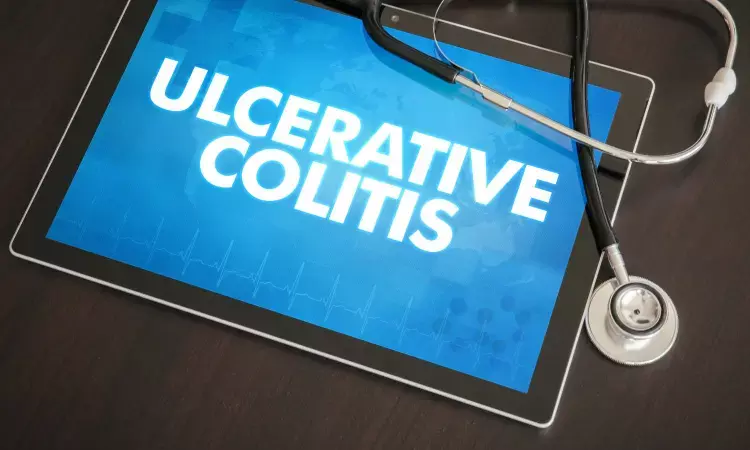- Home
- Medical news & Guidelines
- Anesthesiology
- Cardiology and CTVS
- Critical Care
- Dentistry
- Dermatology
- Diabetes and Endocrinology
- ENT
- Gastroenterology
- Medicine
- Nephrology
- Neurology
- Obstretics-Gynaecology
- Oncology
- Ophthalmology
- Orthopaedics
- Pediatrics-Neonatology
- Psychiatry
- Pulmonology
- Radiology
- Surgery
- Urology
- Laboratory Medicine
- Diet
- Nursing
- Paramedical
- Physiotherapy
- Health news
- Fact Check
- Bone Health Fact Check
- Brain Health Fact Check
- Cancer Related Fact Check
- Child Care Fact Check
- Dental and oral health fact check
- Diabetes and metabolic health fact check
- Diet and Nutrition Fact Check
- Eye and ENT Care Fact Check
- Fitness fact check
- Gut health fact check
- Heart health fact check
- Kidney health fact check
- Medical education fact check
- Men's health fact check
- Respiratory fact check
- Skin and hair care fact check
- Vaccine and Immunization fact check
- Women's health fact check
- AYUSH
- State News
- Andaman and Nicobar Islands
- Andhra Pradesh
- Arunachal Pradesh
- Assam
- Bihar
- Chandigarh
- Chattisgarh
- Dadra and Nagar Haveli
- Daman and Diu
- Delhi
- Goa
- Gujarat
- Haryana
- Himachal Pradesh
- Jammu & Kashmir
- Jharkhand
- Karnataka
- Kerala
- Ladakh
- Lakshadweep
- Madhya Pradesh
- Maharashtra
- Manipur
- Meghalaya
- Mizoram
- Nagaland
- Odisha
- Puducherry
- Punjab
- Rajasthan
- Sikkim
- Tamil Nadu
- Telangana
- Tripura
- Uttar Pradesh
- Uttrakhand
- West Bengal
- Medical Education
- Industry
Mirikizumab Highly Effective in Treating Ulcerative Colitis and safely Maintaining Remission: NEJM

An original article entitled "Mirikizumab as Induction and Maintenance Therapy for Ulcerative Colitis", published in the New England Journal of Medicineby Dr Geert D’Haens, M.D., PhD and colleagues has demonstrated the effectiveness of Mirikizumab in inducing and maintaining clinical remission in patients with a history of moderate to severely active ulcerative colitis.
Explaining the study background, they said current therapies for ulcerative colitis are limited by increased infection risk and cancer, non-responsiveness to primary therapy and loss of clinical benefit over time.
Mirikizumab is a humanized IgG4-variant monoclonal antibody. It binds to subunit p19 of interleukin-2. In a phase 2 trial, it is efficacious in managing ulcerative colitis.
This was further investigated in the present study in two phase 3, randomized, double-blind, placebo-controlled trials of mirikizumab in adults with a history of moderately to severely active ulcerative colitis. The patients were randomly assigned (3:1 ) to receive 300 mg mirikizumab or placebo intravenously every four weeks for 12 weeks.
In the maintenance trial, patients responding to mirikizumab induction therapy were randomly assigned (2:1) to receive 200 mg mirikizumab or placebo, administered subcutaneously every four weeks for 40 weeks.
The primary endpoint studies were the clinical remission at week 12 in the induction trial and at week 40 in the maintenance trial.
Major secondary endpoints included Clinical response, endoscopic remission, and improvement in bowel-movement urgency were the major secondary endpoints studied.
The key results of the study are:
- 1281 patients underwent randomization in the induction trial, and 544 patients with a response to mirikizumab underwent randomization again in the maintenance trial.
- There was a higher percentage of patients in the mirikizumab group than in the placebo group having clinical remission at week 12 of the induction trial (24.2% vs 13.3%) and at week 40 of the maintenance trial (49.9% vs 25.1%).
- Patients with mirikizumab had more adverse events of nasopharyngitis and arthralgia than those with a placebo.
- Patients treated with mirikizumab had an opportunistic infection (herpes zoster infection), and 8 had cancer (3 with colorectal cancer).
- Among Patients on placebo, 1 had herpes zoster infection, and none of the patients were reported to have cancer.
They said that in adults with moderately to severely active ulcerative colitis, we found a higher percentage of clinical remissions in patients on induction and maintenance therapy with mirikizumab. However, some patients treated with mirikizumab reported opportunistic infection or cancer.
The remaining questions are whether colorectal cancer detected was present at trial entry or not. This is not only a question but also a limitation.
More investigations are warranted to assess Mirikizumab’s efficacy and safety for treating ulcerative colitis.
Further reading:
BDS, MDS in Periodontics and Implantology
Dr. Aditi Yadav is a BDS, MDS in Periodontics and Implantology. She has a clinical experience of 5 years as a laser dental surgeon. She also has a Diploma in clinical research and pharmacovigilance and is a Certified data scientist. She is currently working as a content developer in e-health services. Dr. Yadav has a keen interest in Medical Journalism and is actively involved in Medical Research writing.
Dr Kamal Kant Kohli-MBBS, DTCD- a chest specialist with more than 30 years of practice and a flair for writing clinical articles, Dr Kamal Kant Kohli joined Medical Dialogues as a Chief Editor of Medical News. Besides writing articles, as an editor, he proofreads and verifies all the medical content published on Medical Dialogues including those coming from journals, studies,medical conferences,guidelines etc. Email: drkohli@medicaldialogues.in. Contact no. 011-43720751


